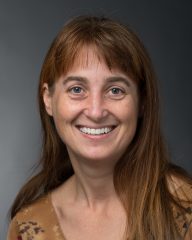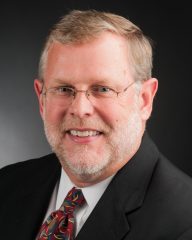An innovative summer program at the University of Wisconsin Oshkosh empowered educators to take students outside to connect with nature. The Earth WELLNESS (Wisconsin Environmental Literacy and Leadership for Naturalists, Educators, Students and Society) program attracted educators from around the state.
The program was led by UW Oshkosh’s Michael Beeth, who is retiring this month from the College of Education and Human Services, and Shannon Davis-Foust, who teaches biology and environmental studies. The 40-hour workshop was facilitated by student assistant Stephanie Losse, a junior biology major from Oshkosh.
Participants engaged in daily field experiences to observe natural areas and learn about issues related to sustainability and wellness—recognizing that a healthy environment contributes to personal as well as global health.
“The Earth WELLNESS program was a great opportunity to learn through direct instruction and through connections built with other educators,” said Alison Sagliocca, Cooperative Academic Partnership Program adjunct from One City High School in Madison. “I am excited to take specific conservation-related examples and teach scientific concepts, like the fact that bees have specific evolutionary adaptations to help with pollination.”

Shannon Davis-Foust
Sagliocca said she learned why it is important to protect bees and their habitat, asking herself where we would be without the biodiversity that allows for a variety of pollination?
Davis-Foust said outdoor inquiry activities helped build a foundation and interest in science.
Among the activities and guest speakers were a UWO campus sustainability tour, with grounds director Lisa Mick highlighting the campus pollinator gardens, spring ephemerals, honeybee colony, vegetable gardens, bird houses and “green” roof.
Exploration and study at High Cliff State Park and at the UWO Environmental Research and Innovation Center were among the field trips; mindfully connecting with nature, learning Indigenous culture and views of nature and incorporating art in environmental education were among the variety of environmental sessions. Participants spent time with nature journaling as well as habitat, biodiversity and seasonal surveys and an energy audit at Read Elementary School in Oshkosh.
A time for dialogue
At the beginning of each day, Losse held a group discussion called Roses, Buds and Thorns, based on the experiences from the day before. Roses stood for new things learned, buds stood for new ideas and thorns stood for things not understood or problematic.
Davis-Foust said the activity proved a great way to get participants thinking about their own thought processes on the material.
In all, 16 participants were part of the workshop. Nearly all planned to include field experiences in their future teaching.

Michael Beeth
“The Earth WELLNESS experience overall had a positive influence on environmental educators to encourage future students to come to UW Oshkosh to learn about sustainability and environmental issues,” Beeth said.
Brenda Beck, junior environmental studies major from Omro, said the program gave her insight into the different roles in society and how they connect to education about protecting the planet and honoring it for the many resources it provides.
Beck said her time with other like-minded individuals allowed her to “look around me, listen and truly feel the ground beneath me and appreciate everything from the tallest trees to the smallest spot of lichen on its branches.”
The program was funded by UWO Sustainability Institute for Regional Transformations and by the Innovative Project funded by the College of Education and Human Services.
“As with every nature class I have been a part of, it was energizing to work with this group of people and an honor to do so,” Davis-Foust said. “Judging by the positive responses, this program needs to happen again.”
Learn more:

